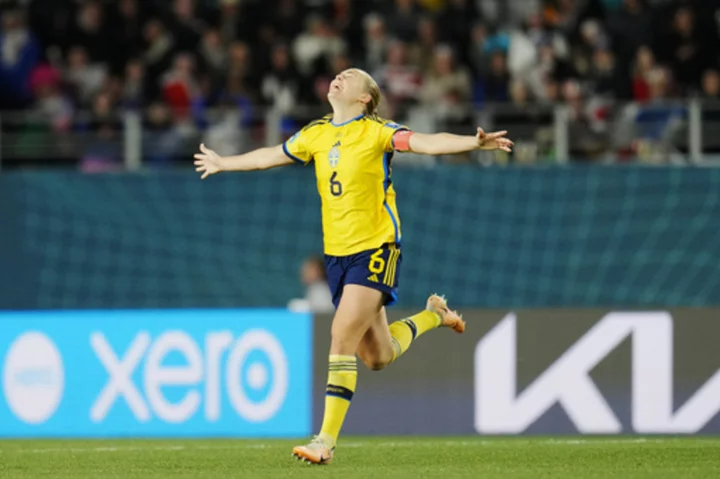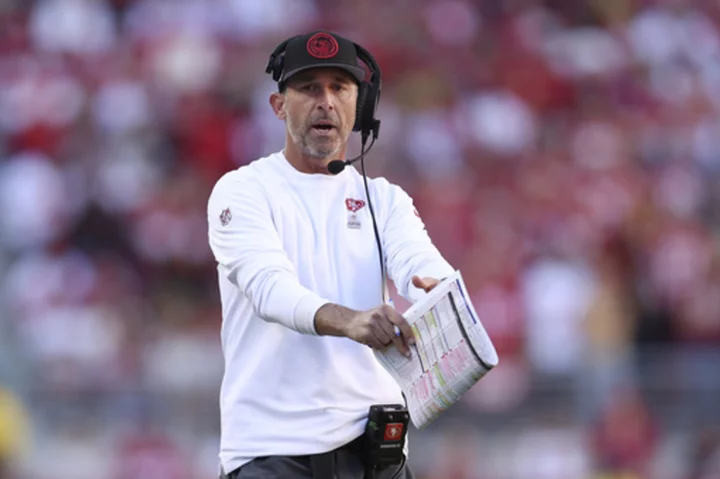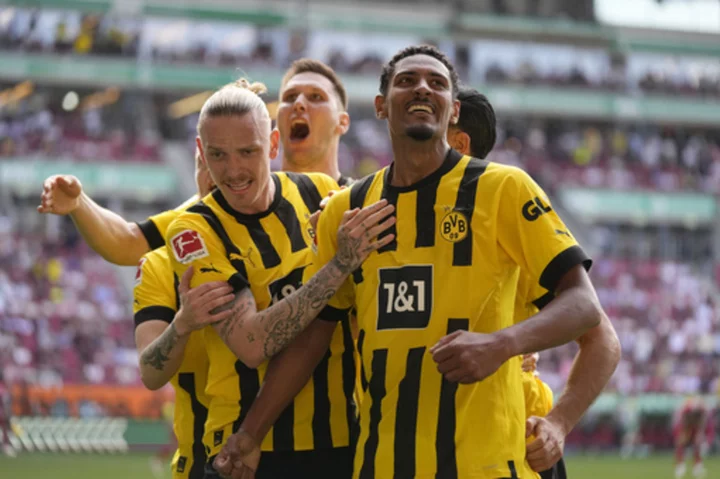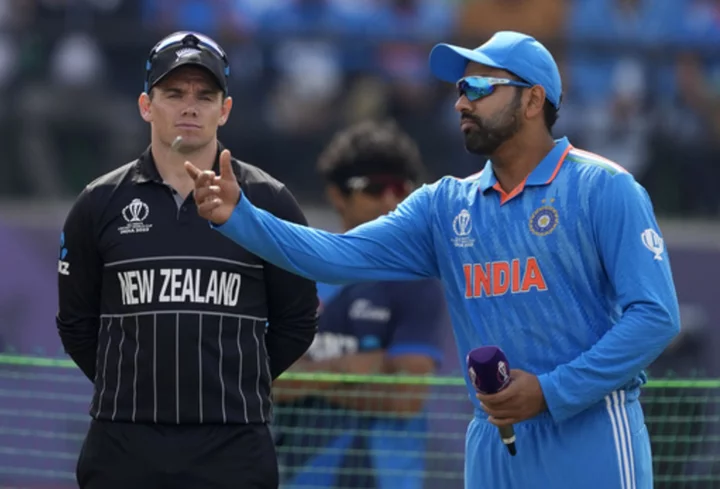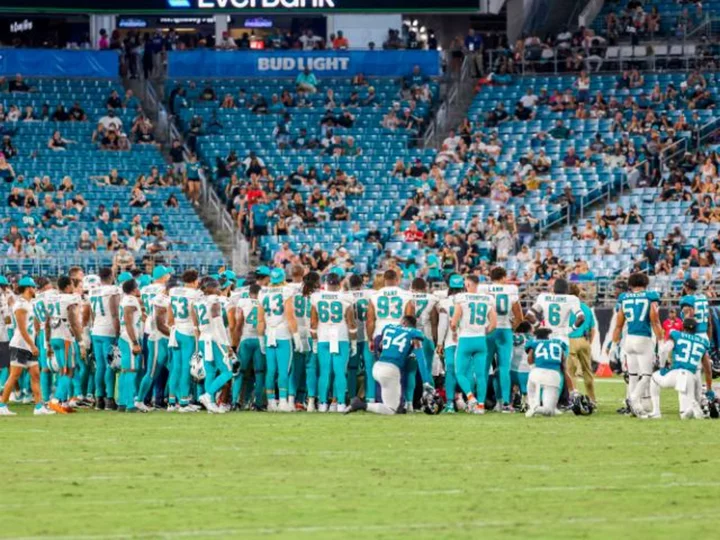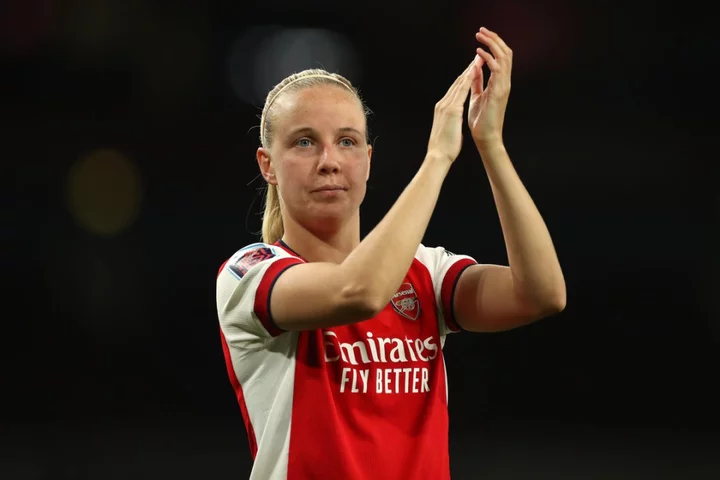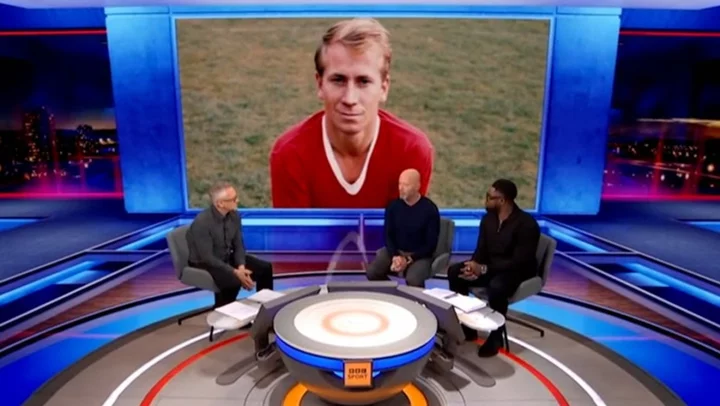Declan Rice move echoes Jack Grealish – and is Arsenal’s statement signing
A dozen years ago, Arsenal sought reinforcements at the heart of the midfield. The callow pair of 20-year-olds, Francis Coquelin and Aaron Ramsey, had started the historic humiliation of an 8-2 thrashing at Old Trafford. Arsene Wenger promptly signed a leader for who the prospect of playing for Arsenal had a greater allure than a lucrative contract to stay in David Moyes’ team. The similarities between Mikel Arteta and Declan Rice may end there; the former West Ham captain marked his arrival at Arsenal by speaking of a determination to spend “my best years at this great club” whereas, for the old Evertonian, it amounted to his last years as a player and, arguably, Goodison Park saw his him at his peak. At £105m, Rice cost rather more than his new manager. He arrives with Arsenal not at a low ebb but at a relative high, following their highest finish for seven years and with their best points total since the Invincibles. Manchester has a different pertinence now. By preferring Arsenal to Manchester City, he may have done the Premier League a wider service; Arteta needed Rice more and pursued him for longer but had Pep Guardiola secured the services of his former assistant’s top target, it would have been still harder to envisage anyone overhauling the champions. There is a cold logic to Rice’s decision, too, and not merely in the way his England sidekick Kalvin Phillips has floundered at City: tempting as it must have been to be presented as Ilkay Gundogan’s replacement, Rodri’s presence means Rice would only have been second choice for his optimum role. Instead, a team is being rebuilt around him. At Arsenal, he will have a significance commensurate with his record price tag; a new trio of Martin Odegaard, Kai Havertz and Rice has a bold look. There are dual reasons why Arteta’s choice of a midfielder has particular intrigue. One is his background in the position, and the other his managerial apprenticeship at Guardiola’s shoulder. It is notable that one of his midfield recruits so far – the January arrival Jorginho – was a target when they were together at City and that Oleksandr Zinchenko, converted into an inverted left-back by them at the Etihad, has adopted the same duties in the capital. Rice can seem the anti-Jorginho: less a regista, more a driving runner, scarcely a metronome, but often an all-action figure. It also makes him the antithesis of Arteta the player. Arteta the manager, however, has shown a fondness for defensive midfielders, whether the incumbent Thomas Partey, the new recruit Rice or Moises Caicedo, a wanted man in January, with the physical power he lacked. Rice’s move has echoes of Jack Grealish’s transfer to City for another nine-figure sum and not merely because each has traded the captaincy at one of the Premier League’s middle class for a place in the ranks among the aristocracy. Despite the huge outlay, the former Aston Villa man was given different duties by Guardiola; for Rice, too, the job description may change. He has spent much of his time at West Ham in a pair with Tomas Soucek, often with the quite old-fashioned division of labour where one can go forward if the other remains back. Arsenal’s midfield has a lone pivot and, with Havertz coming in and Granit Xhaka leaving, seems to have acquired a more attacking aspect. Rice will have to shoulder a huge responsibility. Unless he is teamed up in tougher games with Partey or Jorginho, the closest thing he may have to a partner could be Zinchenko in his hybrid role of full-back and wing-half. There will also be a stylistic shift: West Ham tended to have under half of possession, even when finishing in the top seven. Arsenal have rather more and Rice can expect greater involvement on the ball. But a theme of Rice’s career has been the way he has risen to challenges and surpassed expectations, and not merely those of Chelsea when they infamously released him. On day one at Arsenal, he spoke of having “more levels to go up to”. Improvement has been a constant in recent years and Rice can cast a gaze at new teammates and see a host who have progressed significantly under Arteta. He belongs in the same bracket as others for different reasons. Arteta came to the Emirates Stadium in the austerity era under Arsene Wenger where most of the prices were small, buys were generally designed to produce profits and the occasional loss-making deal felt a greater problem. Under Arteta, there has been more of a willingness to stretch themselves and there are several, such as Ben White and Aaron Ramsdale, for whom Arsenal were initially accused of paying over the odds; there is, though, a logic to paying over the odds for the right player, if not the wrong one, and sometimes fees can soon seem more justifiable. He will be part of an English core, too, even if it is possible that only Ramsdale, Bukayo Saka and him start in the strongest side. Arteta has a youthful local contingent, just as Wenger did with Theo Walcott, Jack Wilshere, Alex Oxlade-Chamberlain, Carl Jenkinson and Kieran Gibbs when the Spaniard signed. Yet in another respect, there is only one parallel with Rice in the Frenchman’s long reign. Not since Sol Campbell has an automatic choice for England joined Arsenal. Rice’s move across London is more costly and less controversial but if there is pressure on Arsenal’s record buy, there is less rancour around him. But, like Campbell 22 years ago, he is a statement signing nonetheless. Read More Declan Rice signs for Arsenal in record £105m transfer deal The eye-watering sums behind Declan Rice’s record transfer to Arsenal ‘Please don’t say you’re going Arsenal’: Stormzy reacts to Declan Rice’s transfer news How Declan Rice’s move to Arsenal compares with other big-money transfers Declan Rice confirms ‘tough’ West Ham departure with Arsenal move imminent Declan Rice leaves West Ham for record fee with Arsenal move imminent
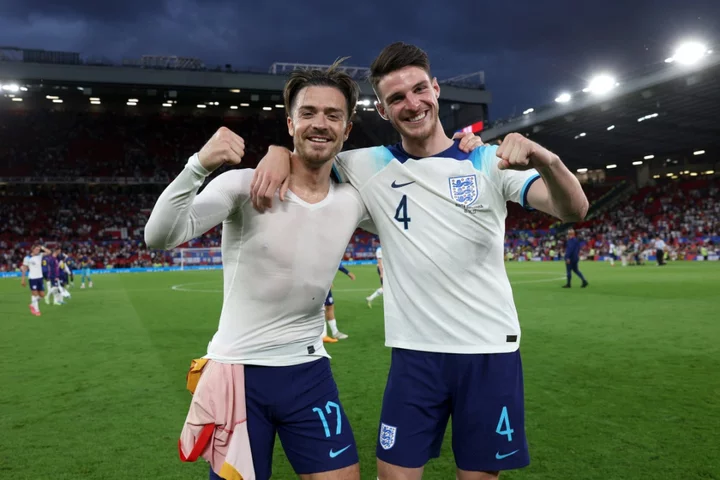
A dozen years ago, Arsenal sought reinforcements at the heart of the midfield. The callow pair of 20-year-olds, Francis Coquelin and Aaron Ramsey, had started the historic humiliation of an 8-2 thrashing at Old Trafford. Arsene Wenger promptly signed a leader for who the prospect of playing for Arsenal had a greater allure than a lucrative contract to stay in David Moyes’ team.
The similarities between Mikel Arteta and Declan Rice may end there; the former West Ham captain marked his arrival at Arsenal by speaking of a determination to spend “my best years at this great club” whereas, for the old Evertonian, it amounted to his last years as a player and, arguably, Goodison Park saw his him at his peak. At £105m, Rice cost rather more than his new manager. He arrives with Arsenal not at a low ebb but at a relative high, following their highest finish for seven years and with their best points total since the Invincibles.
Manchester has a different pertinence now. By preferring Arsenal to Manchester City, he may have done the Premier League a wider service; Arteta needed Rice more and pursued him for longer but had Pep Guardiola secured the services of his former assistant’s top target, it would have been still harder to envisage anyone overhauling the champions.
There is a cold logic to Rice’s decision, too, and not merely in the way his England sidekick Kalvin Phillips has floundered at City: tempting as it must have been to be presented as Ilkay Gundogan’s replacement, Rodri’s presence means Rice would only have been second choice for his optimum role. Instead, a team is being rebuilt around him. At Arsenal, he will have a significance commensurate with his record price tag; a new trio of Martin Odegaard, Kai Havertz and Rice has a bold look.
There are dual reasons why Arteta’s choice of a midfielder has particular intrigue. One is his background in the position, and the other his managerial apprenticeship at Guardiola’s shoulder. It is notable that one of his midfield recruits so far – the January arrival Jorginho – was a target when they were together at City and that Oleksandr Zinchenko, converted into an inverted left-back by them at the Etihad, has adopted the same duties in the capital.
Rice can seem the anti-Jorginho: less a regista, more a driving runner, scarcely a metronome, but often an all-action figure. It also makes him the antithesis of Arteta the player. Arteta the manager, however, has shown a fondness for defensive midfielders, whether the incumbent Thomas Partey, the new recruit Rice or Moises Caicedo, a wanted man in January, with the physical power he lacked.
Rice’s move has echoes of Jack Grealish’s transfer to City for another nine-figure sum and not merely because each has traded the captaincy at one of the Premier League’s middle class for a place in the ranks among the aristocracy. Despite the huge outlay, the former Aston Villa man was given different duties by Guardiola; for Rice, too, the job description may change.
He has spent much of his time at West Ham in a pair with Tomas Soucek, often with the quite old-fashioned division of labour where one can go forward if the other remains back. Arsenal’s midfield has a lone pivot and, with Havertz coming in and Granit Xhaka leaving, seems to have acquired a more attacking aspect. Rice will have to shoulder a huge responsibility. Unless he is teamed up in tougher games with Partey or Jorginho, the closest thing he may have to a partner could be Zinchenko in his hybrid role of full-back and wing-half. There will also be a stylistic shift: West Ham tended to have under half of possession, even when finishing in the top seven. Arsenal have rather more and Rice can expect greater involvement on the ball.
But a theme of Rice’s career has been the way he has risen to challenges and surpassed expectations, and not merely those of Chelsea when they infamously released him. On day one at Arsenal, he spoke of having “more levels to go up to”. Improvement has been a constant in recent years and Rice can cast a gaze at new teammates and see a host who have progressed significantly under Arteta.
He belongs in the same bracket as others for different reasons. Arteta came to the Emirates Stadium in the austerity era under Arsene Wenger where most of the prices were small, buys were generally designed to produce profits and the occasional loss-making deal felt a greater problem. Under Arteta, there has been more of a willingness to stretch themselves and there are several, such as Ben White and Aaron Ramsdale, for whom Arsenal were initially accused of paying over the odds; there is, though, a logic to paying over the odds for the right player, if not the wrong one, and sometimes fees can soon seem more justifiable.
He will be part of an English core, too, even if it is possible that only Ramsdale, Bukayo Saka and him start in the strongest side. Arteta has a youthful local contingent, just as Wenger did with Theo Walcott, Jack Wilshere, Alex Oxlade-Chamberlain, Carl Jenkinson and Kieran Gibbs when the Spaniard signed. Yet in another respect, there is only one parallel with Rice in the Frenchman’s long reign. Not since Sol Campbell has an automatic choice for England joined Arsenal. Rice’s move across London is more costly and less controversial but if there is pressure on Arsenal’s record buy, there is less rancour around him. But, like Campbell 22 years ago, he is a statement signing nonetheless.
Read More
Declan Rice signs for Arsenal in record £105m transfer deal
The eye-watering sums behind Declan Rice’s record transfer to Arsenal
‘Please don’t say you’re going Arsenal’: Stormzy reacts to Declan Rice’s transfer news
How Declan Rice’s move to Arsenal compares with other big-money transfers
Declan Rice confirms ‘tough’ West Ham departure with Arsenal move imminent
Declan Rice leaves West Ham for record fee with Arsenal move imminent


